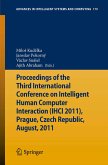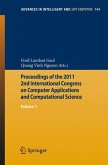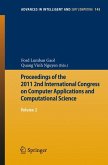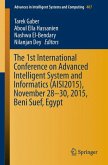A computer network is a collection of computers and devices interconnected by communications channels that facilitate communications and allows sharing of resources and information among interconnected devices. Networks may be classified according to a wide variety of characteristics such as medium used to transport the data, communications protocol used, scale, topology, organizational scope, etc. Electronics engineering is an engineering discipline where non-linear and active electrical components such as electron tubes, and semiconductor devices, especially transistors, diodes and integrated circuits, are utilized to design electronic circuits, devices and systems, typically also including passive electrical components and based on printed circuit boards.
ICCE 2011 Volume 3 is to provide a forum for researchers, educators, engineers, and government officials involved in the general areas of Computer Engineering and Electronic Engineering to disseminate their latest research results and exchange views on the future research directions of these fields. 99 high-quality papers are included in the volume. Each paper has been peer-reviewed by at least 2 program committee members and selected by the volume editor.
Dieser Download kann aus rechtlichen Gründen nur mit Rechnungsadresse in A, B, BG, CY, CZ, D, DK, EW, E, FIN, F, GR, HR, H, IRL, I, LT, L, LR, M, NL, PL, P, R, S, SLO, SK ausgeliefert werden.









